 Petzlover
Petzlover Munchkin is originated from United States but Siamese/Tabby is originated from United Kingdom. Both Munchkin and Siamese/Tabby are having almost same weight. Munchkin may live 5 years less than Siamese/Tabby. Both Munchkin and Siamese/Tabby has same litter size. Both Munchkin and Siamese/Tabby requires Low Maintenance.
Munchkin is originated from United States but Siamese/Tabby is originated from United Kingdom. Both Munchkin and Siamese/Tabby are having almost same weight. Munchkin may live 5 years less than Siamese/Tabby. Both Munchkin and Siamese/Tabby has same litter size. Both Munchkin and Siamese/Tabby requires Low Maintenance.
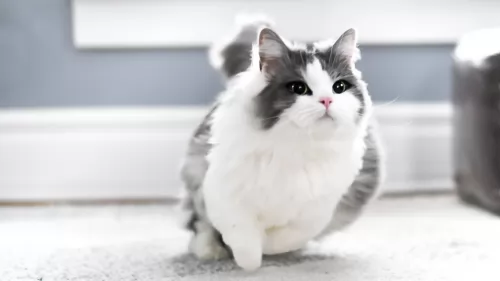 Information about the short-legged Munchkin cat has been around since the 1940s. A British veterinary report in 1944 noted these short-legged cats.
Information about the short-legged Munchkin cat has been around since the 1940s. A British veterinary report in 1944 noted these short-legged cats.
During the 2nd World War, the cats disappeared but other short-legged cats were seen in Russia during 1956 and then the United States in the 1970s.
The cat was introduced to the general public in 1991 but for many years it wasn't accepted in cat competitions. Eventually, the Munchkin was proposed as a new breed by foundation breeders and accepted by TICA into its New Breed development program in 1994. The Munchkin breed achieved TICA Championship status in May 2003. The Cat Fanciers Association doesn’t recognize the Munchkin.
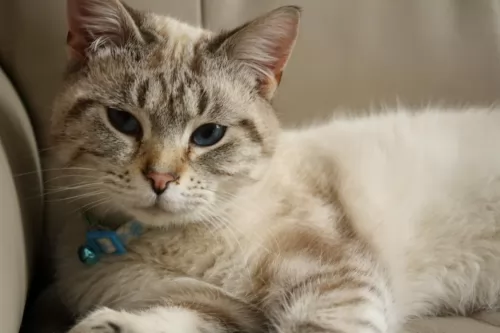 Lynx point Siamese cats are believed to also be known as Tabby point Siamese in the UK. Breeding of these cats began in about the 1940s and the first kitten born was crossed with a purebred Seal Point cat. That was the start of the seal tabby point Siamese cat.
Lynx point Siamese cats are believed to also be known as Tabby point Siamese in the UK. Breeding of these cats began in about the 1940s and the first kitten born was crossed with a purebred Seal Point cat. That was the start of the seal tabby point Siamese cat.
After the first kitten was born, many people were intrigued with it and it got plenty of attention, and breeders knew that to please cat lovers everywhere they would have to start producing these wonderful tabby Siamese points.
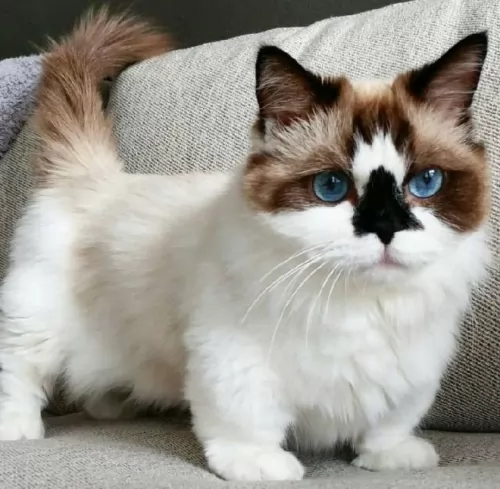 The Munchkin is a small to medium-sized, muscular cat with a thick coat that comes in all colors and patterns. In fact, color, pattern, and coat length will vary.
The Munchkin is a small to medium-sized, muscular cat with a thick coat that comes in all colors and patterns. In fact, color, pattern, and coat length will vary.
There is also a long-haired variety. It usually weighs between 3 and 4kg. It has short, stubby little legs and a torso that hangs fairly low to the ground. The cat’s back legs are somewhat longer than the front legs. The legs of these cats can be slightly bowed. The eyes can be any color.
The Munchkin is such a social, outgoing cat that just loves being petted and pampered by his human family. He is sociable and friendly as well as intelligent and is easy to train. While he is an amicable cat and can get on well with everyone in the family, it isn’t a good idea to have such a cat as a playmate for children as they can become injured.
An interesting feature with this cat is the way he doesn’t really sit like other cats but has a way of sitting up on his legs, much like a rabbit.
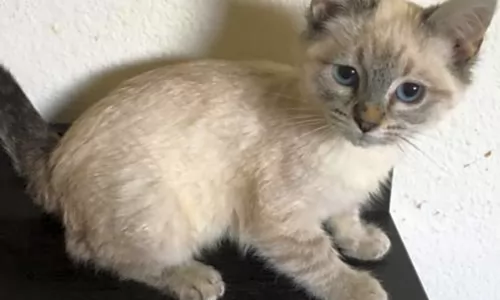 The Tabby pointed Siamese cat is medium-sized and can weigh between 3 and 5kg. He has some stripes, mostly around the legs, and the tail is also striped. These cats are available in many different colors – blue, lilac, apricot, seal, and chocolate. The ears are triangular-shaped and there is an ‘M’ shaped mark on the forehead of the cat. All these markings make the cat most distinctive.
The Tabby pointed Siamese cat is medium-sized and can weigh between 3 and 5kg. He has some stripes, mostly around the legs, and the tail is also striped. These cats are available in many different colors – blue, lilac, apricot, seal, and chocolate. The ears are triangular-shaped and there is an ‘M’ shaped mark on the forehead of the cat. All these markings make the cat most distinctive.
The Siamese and Siamese Tabby cats share many similarities in character. They are social cats, loving the interaction with their human families. They’re loyal, intelligent cats and they love to play.
They can live to be about 15 to 20 years of age and throughout this time they will provide you with love, companionship, entertainment, and joy.
In fact, they thrive so much on your company, that they can easily become lonely and run-down when left alone for too long.
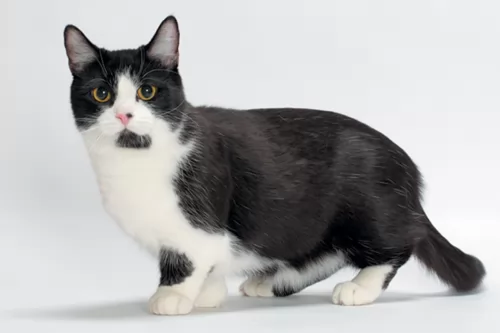 The Munchkin may be short and stock but he is just as active and playful as any other cat. When you have him in your home, you'll discover that his short little legs don't stop him from trying out everything other cats do.
The Munchkin may be short and stock but he is just as active and playful as any other cat. When you have him in your home, you'll discover that his short little legs don't stop him from trying out everything other cats do.
He is ready to show you what he's made of. He is a confident, social cat and is friendly, intelligent, and loving towards his human family. He makes a devoted companion and he will get along with other cats in the family as well as dogs.
He may be a bit odd to look at but if you want an excellent companion, the Munchkin is well worth your consideration.
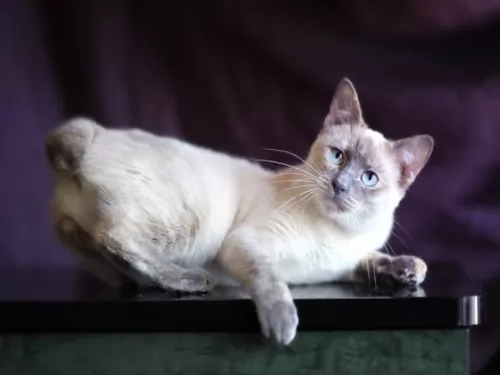 These cats are people-loving cats – they just crave the companionship of their human family although they’re not particularly fond of strangers.
These cats are people-loving cats – they just crave the companionship of their human family although they’re not particularly fond of strangers.
They make wonderful pets as they actually want to be involved in everything that theur human owners are busy with. They truly are companionable.
They’re intelligent and playful and he will even love to go on a walk with you but then it is best to have him on a leash. Bring one of these awesome cats into your home and you’re guaranteed to have a friend for life.
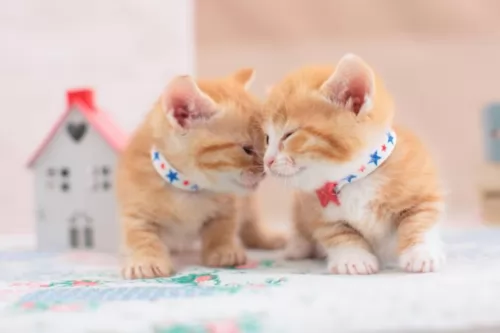 Because this is a fairly new breed, it's still not too clear about its health. It was once thought that the Munchkin cat could develop spinal problems because of its short legs.
Because this is a fairly new breed, it's still not too clear about its health. It was once thought that the Munchkin cat could develop spinal problems because of its short legs.
It was in 1995 that some breeders had some of their older Munchkins x-rayed to see if there were any signs of joint or bone problems, but none were found.
The Munchkin cat should also be vaccinated as a kitten and be treated for parasites. To ensure the good health of your sweet little Munchkin cat, give him the best diet possible.
In fact, if you take good care of your Munchkin and you make sure to get all the necessary vaccines for him and get him to the vet when he shows signs of illness, your munchkin can reach 12 to 15 years of age.
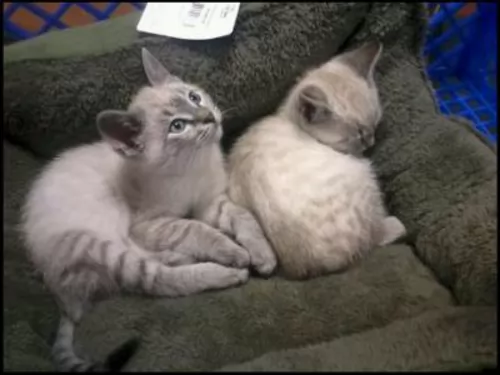 When you look at your cat, you want to see that his eyes are bright and clear, his fur is shiny, he is of a good weight and that he is energetic and content. Not looking like this could indicate health problems for your feline friend. He will need to get to the vet for his vaccines and the vet will check him over to so as to make sure he is in tip-top health.
When you look at your cat, you want to see that his eyes are bright and clear, his fur is shiny, he is of a good weight and that he is energetic and content. Not looking like this could indicate health problems for your feline friend. He will need to get to the vet for his vaccines and the vet will check him over to so as to make sure he is in tip-top health.
Make sure to check him over for parasites and these can cause diarrhea as can other issues such as bacteria, viruses, and the wrong food.
Frequent vomiting is also not normal as well as straining to urinate. These are all instances when you want to get your pet to the vet as soon as possible.
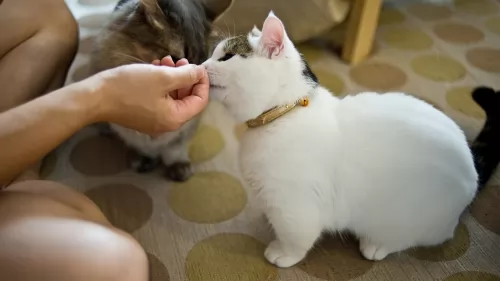 Every cat is unique and the Munchkin is a unique cat, This little cat is a carnivore just like any other cat and his diet must be made up mostly of protein.
Every cat is unique and the Munchkin is a unique cat, This little cat is a carnivore just like any other cat and his diet must be made up mostly of protein.
Speak to your vet about the best food for your Munchkin because a kitten will require a different diet to a senior Munchkin. Also, you don’t want your Munchkin to put on too much weight as this can be detrimental to his joints.
Not only that, being overweight comes with all kinds of health issues. The manufacturers of commercially manufactured cat foods have made sure that they have brought out foods for every stage of a cat's life and age.
Munchkin cats will need to have their fur brushed at least once a week. Trim the claws at the same time.
Provide your sweet little Munchkin with a litter box and keep the litter box immaculately clean, removing the feces every single day.
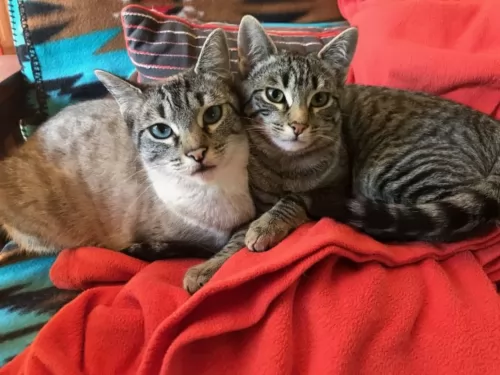 Before you commit to bringing a Siamese/Tabby into your home you must have everything ready for him.
Before you commit to bringing a Siamese/Tabby into your home you must have everything ready for him.
He will need food and water bowls, commercial cat food, grooming brush, a soft warm bed, collar and tag, litter box, a carrying container to get him to the vet safely, climbing tree, and scratching post.
The fine, silky coat doesn’t shed much and can easily be maintained with a weekly brush.
You will need to trim your cat’s paws. Trimming the claws can be difficult with a squirming cat and you can easily hurt him because of that. Rather get him to the vet who will do it for you.
Make sure to feed your Siamese/Tabby the very best cat food there is as poor quality food can contribute to poor health.
A cat is a carnivore and you therefore have to ensure that his food is made up essentially of meat. The commercial cat foods of today are formulated as dry, semi-moist, and canned and they offer a wonderfully convenient way for you to feed your cat. When you choose the best ones, they are palatable and digestible for your cat.
You just have to remember that your cat’s nutritional requirements change with his different stages of life. A kitten can’t possibly eat the same food as an adult cat. The nutritional claim on the cat food label will be a guide for you as to what your cat should be eating. Always ensure a constant supply of fresh, cool water.